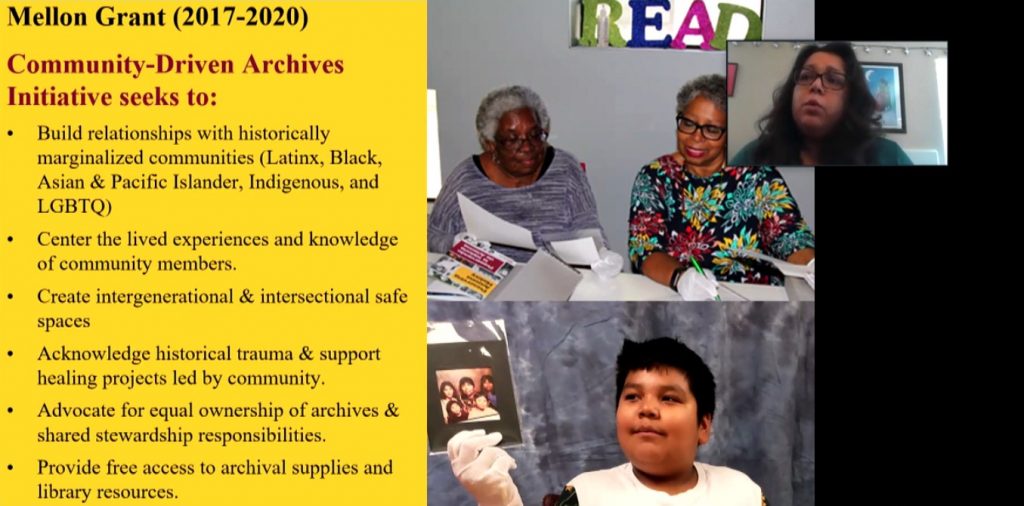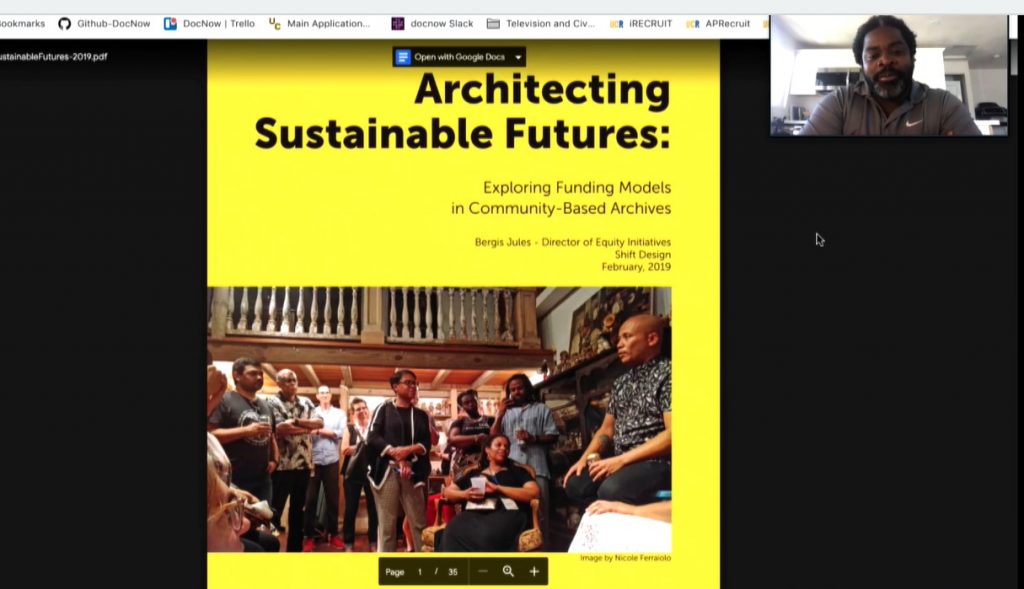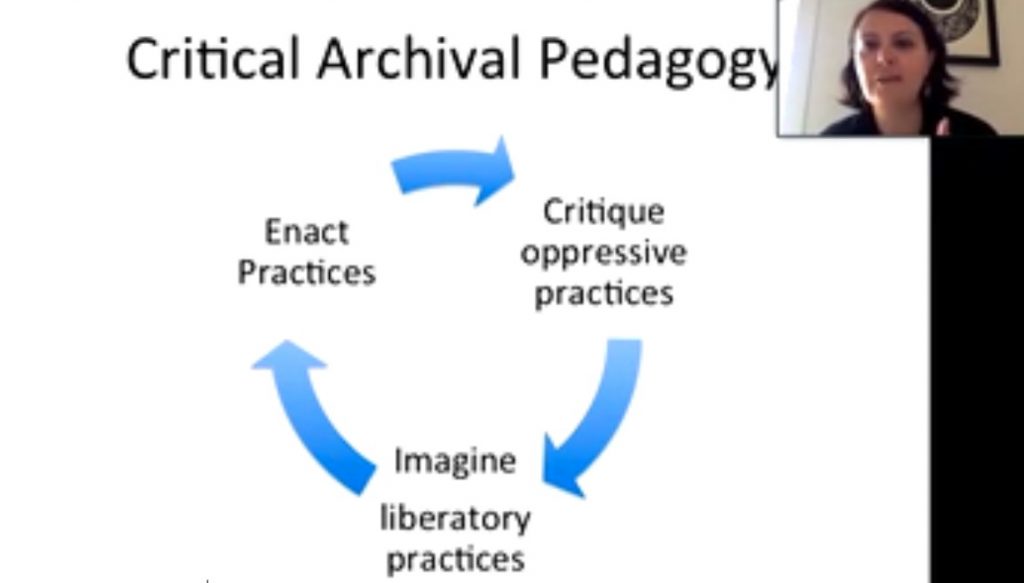On May 1, the University of California-Irvine Libraries hosted a unique conference on Community-Driven Archives (via Vimeo): Transforming Knowledge, Transforming Libraries. This virtual summit featured a group of professional leaders in the field. Most of them, like us with the SHC’s Community-Driven Archives Team (CDAT), work with community groups as institutional collaborators within an academic archive.
What were some of our highlights?
Transforming Knowledge
Archivist Nancy Godoy presented on Arizona State University’s Community-Driven Archives Mellon Grant project (2017-20), which scaled up an initiative that she had led since 2012. The ASU Library’s project has focused primarily on collaborations with Latinx, LGBTQ, and BIPOC communities to support historically underrepresented groups of people in deepening their sense of ownership over their collective histories. It collaborates with participants to help them learn how to preserve and share their stories and archives with their community.
For the SHC’s Community-Driven Archives Team, one of the core tenets of our community-driven archives model is an ethos of community control. This requires us as archives professionals and institutional collaborators to release any need for control over how our community partners choose to organize and interpret their own histories. It means thinking about what our community partners need before considering institutional pressures and community outsiders’ research interests.
Under Godoy’s leadership, ASU’s Community-Driven Archives (CDA) initiative does this. For example, the CDA project has chosen to move all community-focused events off-campus, because, otherwise, “it wasn’t welcoming for the community.” Instead, Godoy and her colleagues host these bilingual Spanish-English events at local community centers, POC-owned bookstores, and public libraries. Participants in ASU’s community archives and preservation workshops come to work on their own collections or those of fellow community members, utilizing archival tools resourced through grant funds with ASU staff support.

In Godoy’s words, her goal for this work is to create intergenerational spaces of healing for individuals, “driven by justice and a deep love for their themselves and their communities, to learn and transform archival knowledge as they dismantle the power structures that have dehumanized them.”
Transforming Libraries
Shift Design Director of Equity Initiatives, Bergis Jules, presented on the Architecting Sustainable Futures gathering that he helped to organize and host in New Orleans in 2018. This gathering convened a cross-section of people working with community archives: leaders of community-based archives, archives professionals, and current and potential funders. Together, they brainstormed ideas for sustainable funding models to support communities in collecting, preserving, and sharing their own histories with support from outside institutions.
Jules presented from the report on the gathering, focusing on the report’s recommendations for university library partners of community-based archives, including us with the CDAT at UNC.

The recommendations are straightforward and give those of us working in university library archives much to consider:
- Don’t be extractive, which asks universities to acknowledge the power and privilege they hold while in collaboration with community-based archives and to ensure that community partners benefit first and foremost from collaboration.
- Practice equity, which requires that archives professionals honor the wisdom of community archivists and treat them as they would their peers in the field, with regard to working relationships and fair compensation.
- Be transparent, which means providing clear information about goals, resources, timeline, and deliverables during joint project planning as well as grant applications and grant management.
- Honor the wisdom of the community, which asks institutional partners to recognize that community history keepers may have their own ways of preserving their histories that have been working for them, and that we have much to learn through any partnership.
Similarly, Michelle Caswell, Assistant Professor of Archival Studies and Director of the Community Archives Lab at UCLA, spoke on her approach to teaching community archives as part of an MLIS program. Caswell shared an overview of her current course on community archives, which uses a justice-based archival framework that draws participants in as co-creators of “politically generative,” transformative spaces.
Caswell underscored the task facing those of us working within academic institutions in support of community archives: We have a responsibility to pass on traditional archival methods so that our students can learn existing practices and get a job, while simultaneously calling those practices into question and demanding innovation. Caswell calls this “Critical Archival Pedagogy.”

We with the CDAT are incorporating these reflections into our ongoing work to strengthen relationships with our community partners, the diversity of users of SHC collections, and MLIS students hungry to learn more about justice-based approaches to archives. We also hope that our fellow libraries and archives professionals will join us in making the time to learn more about these lessons and taking them to heart.
The Community-Driven Archives Project at UNC-Chapel Hill is supported by a grant from the Andrew W. Mellon Foundation.
Follow us on Twitter @SoHistColl_1930
#CommunityDrivenArchives #CDAT #SHC
